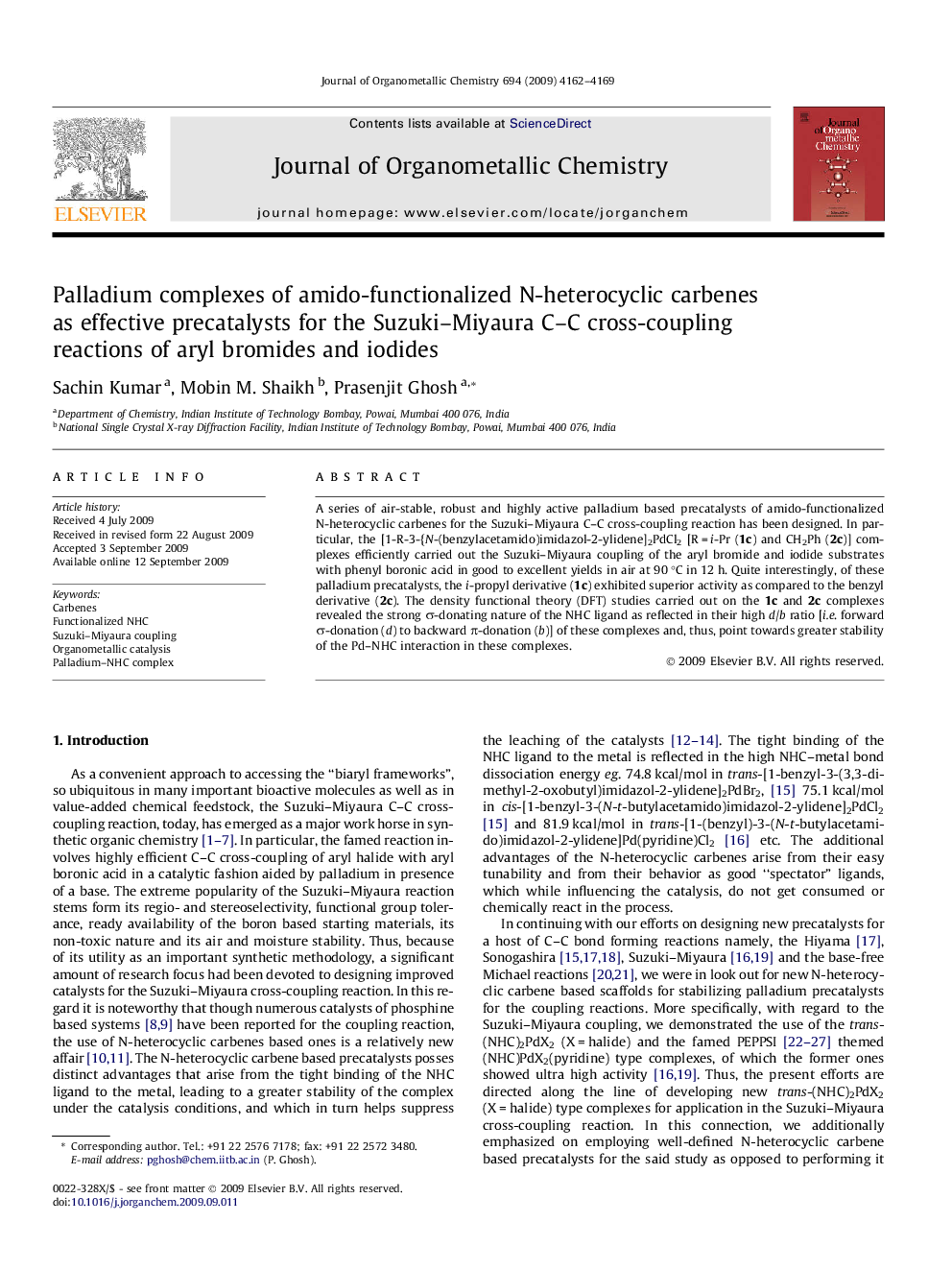| Article ID | Journal | Published Year | Pages | File Type |
|---|---|---|---|---|
| 1325146 | Journal of Organometallic Chemistry | 2009 | 8 Pages |
A series of air-stable, robust and highly active palladium based precatalysts of amido-functionalized N-heterocyclic carbenes for the Suzuki–Miyaura C–C cross-coupling reaction has been designed. In particular, the [1-R-3-{N-(benzylacetamido)imidazol-2-ylidene]2PdCl2 [R = i-Pr (1c) and CH2Ph (2c)] complexes efficiently carried out the Suzuki–Miyaura coupling of the aryl bromide and iodide substrates with phenyl boronic acid in good to excellent yields in air at 90 °C in 12 h. Quite interestingly, of these palladium precatalysts, the i-propyl derivative (1c) exhibited superior activity as compared to the benzyl derivative (2c). The density functional theory (DFT) studies carried out on the 1c and 2c complexes revealed the strong σ-donating nature of the NHC ligand as reflected in their high d/b ratio [i.e. forward σ-donation (d) to backward π-donation (b)] of these complexes and, thus, point towards greater stability of the Pd–NHC interaction in these complexes.
Graphical abstractA series of air-stable, robust and highly active palladium based precatalysts of amido-functionalized N-heterocyclic carbenes (1c and 2c) for the Suzuki–Miyaura C–C cross-coupling of aryl bromides and iodides have been designed.Figure optionsDownload full-size imageDownload as PowerPoint slide
